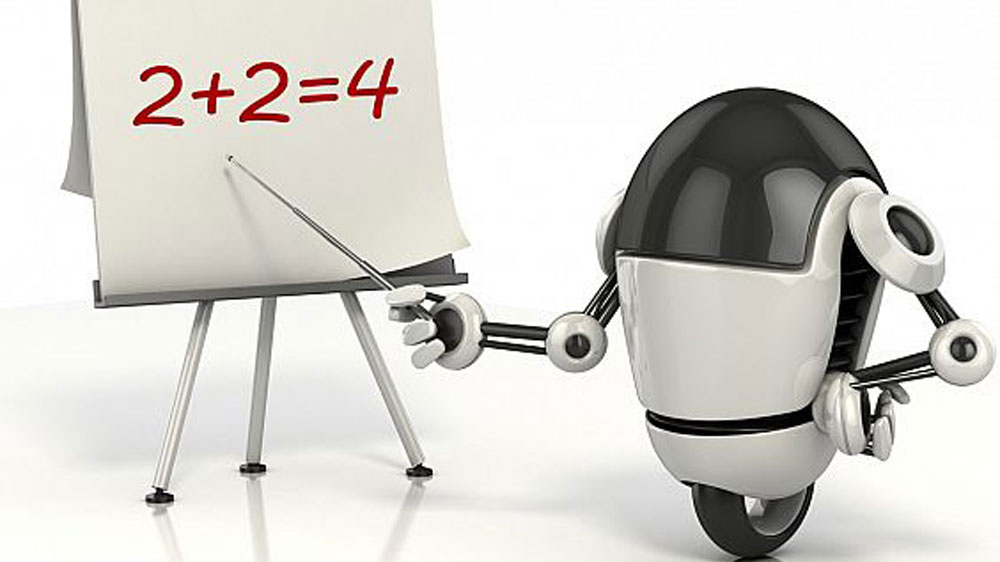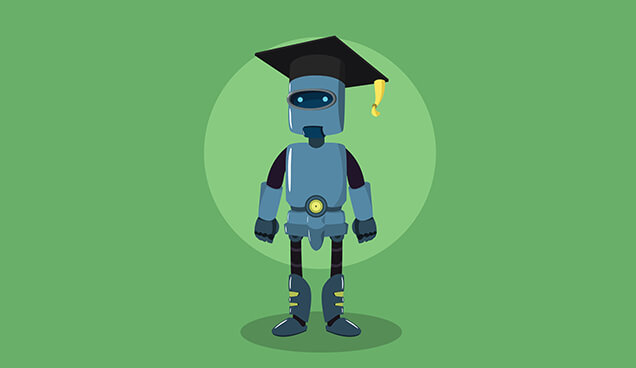
While formal education in several parts of the world is still associated with the widely-accepted traditional brick and mortar schools, the global education fraternity has opened up to e-learning.
E-learning equipped with artificial intelligence (AI) has an immense potential to revolutionize education.
The advent of AI has furthered the automation of cognitive activities. Along with gauging a student’s learning style and pre-existing knowledge, AI systems can meticulously design courses catering to the specific needs of the students.
To keep pace with the upcoming time, the education system needs to reinvent itself by integrating AI across subjects. AI can empower classrooms in diverse ways, contributing massively towards education.
The rise of AI-powered intelligent tutoring systems
According to Technavio, the global artificial intelligence market in the education sector 2016-2020 will grow at a CAGR of more than 39% by 2020. One of the primary factors fuelling this market growth is the adoption of intelligent tutoring systems (ITSs) in the learning process.
An ITS is an AI-based learning software capable of imitating the methods and dialog of human tutors to impart knowledge in real time and on demand. It has the capability to analyze complex human responses while imparting knowledge at the same time on subjects like science, mathematics, languages, medicine, and law.
Moreover, the learning system is the application of AI to the education that tracks students' work and offers a tailored feedback, comprehending their strengths and weaknesses and suggesting additional work.

AI in classrooms: Next giant leap in education
Understand this, how a computerized chess program defeats a grandmaster. Just imagine what goes into making such a software and what AI is capable of doing. It can do data-driven analysis and make decisions faster than the humans.
Artificial Intelligence has already made its presence felt in the transportation and medicine industries and is all set to make a big impact in the education sector too. Let’s look at what it will offer.

● AI will offer a personalized approach
Every student has a different pace and style to process information; every teacher understands that. In the traditional classroom model, a teacher with finite resources has to teach the whole class at once. Therefore, personalizing content to meet the diverse needs of each student is impracticable.
However, such personalization is possible with e-learning supported by advanced artificial intelligence. AI can easily identify students’ strengths and weaknesses and advise apposite methods based on their level of mastery and comprehension of concepts, resulting in a more worthwhile learning experience for students.
● AI will bring down the cost of education
While college fees continue to rise, getting a basic, quality education and then a recognized degree at a brick and mortar institution can be crippling for students and families. For higher education students, the costs of attaining a quality education without obtaining a scholarship are often seen to be prohibitive.
AI will not replace teachers anytime soon. However, it will do away with the mundane teaching work such as the maintenance of classrooms, staff perks, and administrative hassles. Academic institutions can employ fewer teachers to cater to the same number of students or even more and hence making education less expensive for students.
● AI will create an immersive learning experience
Learning through hands-on activities is way different than just passively listening to a lecture. Hence, hands-on activities are important and count as a form of experiential learning. They are fun yet time-consuming and sometimes unmanageable especially with a large group of students. How do we overcome that challenge?
Immersive technology with new wearable devices like Microsoft HoloLens and augmented reality can be the solution. With the support of AI providing tangible, customized learning, it makes learning more exciting, fun and practical. Concepts can become characters and activities can be storylines.
Students can explore and ‘immerse’ themselves in the topics they are learning. They will engage more when they see and interact with dinosaurs or stomata instead of just reading about them in a textbook.
● AI will assist in concept building
AI-enabled virtual tutors understand the questions asked and instantly provide easy-to-understand answers to the students. This aids students to have strong basics with correct know-how, to not cumulate confusions and to save time.
Earlier, e-learning was focused on sterile problem-solving approaches for reaching correct answers. But with AI, the method used to derive the right answer is as important as the right answer. It is necessary to adapt to abstract concepts and practicality.
● AI will support adaptive learning
Apart from answering questions on demand, the latest AI teaching systems are capable of spotting topics where students are lagging behind and helping them to focus on them. They assist teachers to recognize weak students and implement a more efficient way of teaching.
AI provides updated a courseware and more inclusive pedagogy, transforming how students engage with the material. With millions of students using the adaptive learning approach, it seems to have a bright future.
AI-enabled virtual tutors understand the questions asked and instantly provide easy-to-understand answers to the students. This aids students to have strong basics with correct know-how, to not cumulate confusions and to save time.
Earlier, e-learning was focused on sterile problem-solving approaches for reaching correct answers. But with AI, the method used to derive the right answer is as important as the right answer. It is necessary to adapt to abstract concepts and practicality.
● AI will support adaptive learning
Apart from answering questions on demand, the latest AI teaching systems are capable of spotting topics where students are lagging behind and helping them to focus on them. They assist teachers to recognize weak students and implement a more efficient way of teaching.
AI provides updated a courseware and more inclusive pedagogy, transforming how students engage with the material. With millions of students using the adaptive learning approach, it seems to have a bright future.
Scope of artificial intelligence in education
Excessive dependence on technology in classrooms may be a reason of concern for many but the fact is that the AI’s ability to offer flexibility in teaching is unmatchable.
With EdTech industry developing a range of products and services to supplement classroom learning, there is no doubt that the future of AI is promising. Being in the nascent stage, AI has to make a lot of progress.
Nevertheless, AI will become more and more integrated into the education system, becoming vital in classrooms as students and educators will reap benefits from a fastidious, effective, and more individualized approach to education.
Excessive dependence on technology in classrooms may be a reason of concern for many but the fact is that the AI’s ability to offer flexibility in teaching is unmatchable.
With EdTech industry developing a range of products and services to supplement classroom learning, there is no doubt that the future of AI is promising. Being in the nascent stage, AI has to make a lot of progress.
Nevertheless, AI will become more and more integrated into the education system, becoming vital in classrooms as students and educators will reap benefits from a fastidious, effective, and more individualized approach to education.
Author Bio
Ashmita
Tamta writes academic content for Collegedunia, a college information and review site. She is an avid
follower of the trends in educational technology. Her articles have appeared on
the portals of Southwest Londoner, Indian Express, Business World, Afternoon
DC, among others.
Related Resources:
- 7 Roles for Artificial Intelligence in Education
- How AI Impacts Education
- A Blended Environment: The Future of AI and Education
- Artificial Intelligence: Implications for the Future of Education
- 10 Roles For Artificial Intelligence In Education
.
